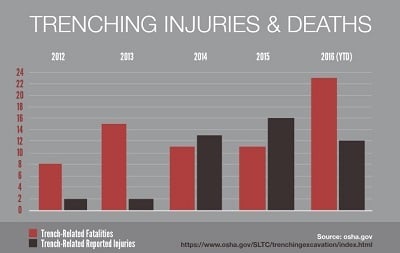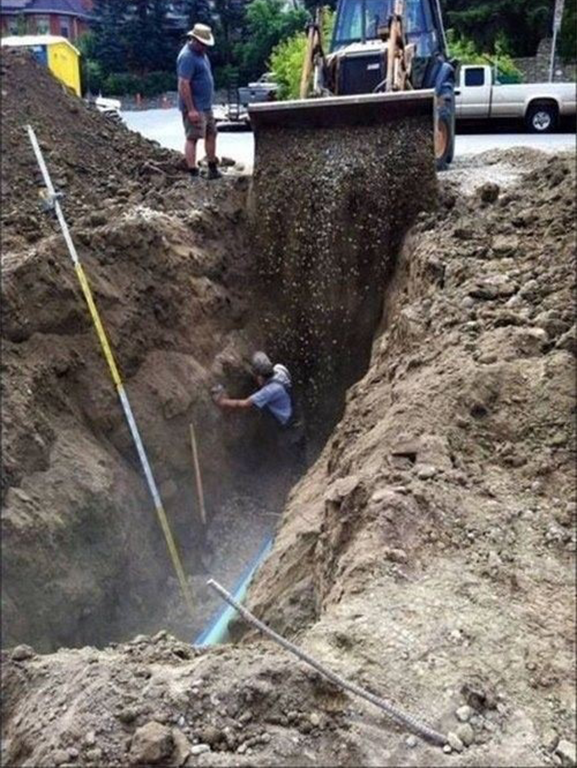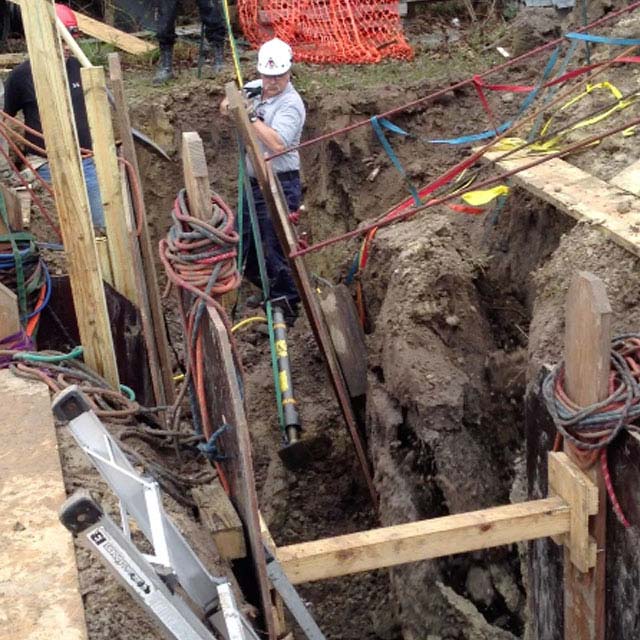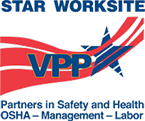
Twenty-three workers were killed and 12 others injured in trench collapses in 2016 – an alarming increase from the previous year. "There is no excuse,” said Dr. David Michaels, OSHA assistant secretary.
"These fatalities are completely preventable by complying with OSHA standards that every construction contractor should know."
Among the victims was a 33-year-old employee, crushed to death this summer as he dug a 12-foot trench for a plumbing company out of Ohio. An OSHA investigation found that they failed to protect its workers from the dangers of trench collapses. The company was issued two willful and two serious violations, with proposed penalties of $274,359.
OSHA's trenching standards require protective systems on trenches deeper than 5 feet, with soil and other materials kept at least two feet from the edge of trench.OSHA has a national emphasis program on trenching and excavations with the goal of increasing hazard awareness and employer compliance with safety standards. For more information, read the news release.
Source: OSHA QuickTakes December 1, 2016, Volume 15, Issue 26
Comments from Dennis O'Connell, Roco Director of Training & Chief Instructor
In the above OSHA Newsletter, they highlight this growing problem. Besides the loss of human life, the “SERIOUS” and “WILLFUL” violations paragraph should get you asking, “Are we doing what we should be for trenching in our facility?”
 The new OSHA statistics show in 2016, we have two people a month dying in trenches, which is double the amounts for 2014 & 2015. Why, is the soil getting more dangerous? I can only speak to what I have seen in trends in industry that may be contributing to this rise. In previous articles, I have discussed the subject of trench and trench rescue and some of the following concerns:
The new OSHA statistics show in 2016, we have two people a month dying in trenches, which is double the amounts for 2014 & 2015. Why, is the soil getting more dangerous? I can only speak to what I have seen in trends in industry that may be contributing to this rise. In previous articles, I have discussed the subject of trench and trench rescue and some of the following concerns:
• Entry Supervisors are not properly trained as Trench Competent Persons and are assuming the contractor is taking all necessary precautions.
• Our Confined Space Entry Supervisors are signing off on trenches as Confined Spaces and not as trenches.
• Rescue - most locations have not trained or equipped their rescue team to handle a possible trench rescue situation even though trench work is a common daily occurrence in most refineries and large municipalities.
• Trench rescue entities are far and few between. Most municipalities are ill equipped to handle trench collapse rescue.

Give us a call for a private Roco Trench Rescue training course at your facility or at the Roco Training Center. Or, register for Roco's open enrollment Trench Rescue course online.




























































 Our sincere thanks to Bud and Catherine at Skedco, Inc. for donating new Skeds with Cobra buckles to our Roco Flood Relief Fund. These Skeds will be sold at the very special price of $500 with 100% of the proceeds going to assist Roco team members who have lost their homes in recent flooding.
Our sincere thanks to Bud and Catherine at Skedco, Inc. for donating new Skeds with Cobra buckles to our Roco Flood Relief Fund. These Skeds will be sold at the very special price of $500 with 100% of the proceeds going to assist Roco team members who have lost their homes in recent flooding.
 First of all, we would like to thank all of you for your calls, thoughts and prayers during this time of historic flooding in the Baton Rouge region. While so many of our Roco employees and their families have been affected, including some who have lost everything, we are very thankful to report that all are safe. Some estimates show that up to 60,000+ homes received water damage [number updated].
First of all, we would like to thank all of you for your calls, thoughts and prayers during this time of historic flooding in the Baton Rouge region. While so many of our Roco employees and their families have been affected, including some who have lost everything, we are very thankful to report that all are safe. Some estimates show that up to 60,000+ homes received water damage [number updated].  “Out of the ashes of the WTC formed a team of first responders who now volunteer their experience and expertise responding to disaster-stricken communities, and build housing for wounded returning veterans who continue the fight that began on September 11, 2001.”
“Out of the ashes of the WTC formed a team of first responders who now volunteer their experience and expertise responding to disaster-stricken communities, and build housing for wounded returning veterans who continue the fight that began on September 11, 2001.” It is with great honor and pride that we announce our continued recognition as an OSHA Voluntary Protection Program (VPP) Star Worksite company. Three years ago, we first reached this achievement, which requires an on-going safety emphasis and improvement process. To our knowledge, we are the first rescue training, equipment, and service company in the nation to receive this prestigious recognition. It is certainly a testament to everyone’s continued hard work and safety consciousness that we are once again honored with this elite Star status.
It is with great honor and pride that we announce our continued recognition as an OSHA Voluntary Protection Program (VPP) Star Worksite company. Three years ago, we first reached this achievement, which requires an on-going safety emphasis and improvement process. To our knowledge, we are the first rescue training, equipment, and service company in the nation to receive this prestigious recognition. It is certainly a testament to everyone’s continued hard work and safety consciousness that we are once again honored with this elite Star status. The Roco Training Center - Baton Rouge, LA
The Roco Training Center - Baton Rouge, LA


